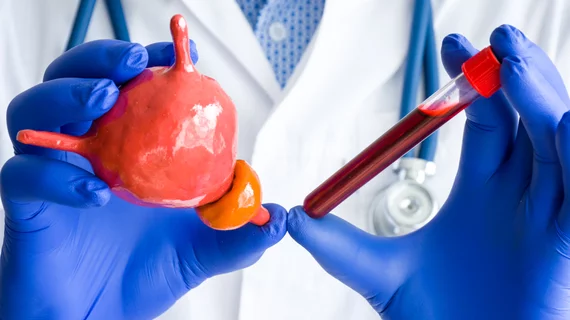Multiparametric MRI’s accuracy for detecting prostate cancer is easily ruined by poor image quality. But new research suggests a scoring system can help radiologists standardize their assessments and report the quality of these exams.
The Prostate Imaging Quality, or PI-QUAL score, compares mpMRI quality against objective technical criteria and subjective image data. Prostate scans are graded on a scale of 1-5, with the latter implying all significant lesions can be ruled in and ruled out.
Researchers out of London put PI-QUAL to the test using more than 100 patient scans performed across various hospitals, sharing their findings Thursday in European Radiology.
Two radiologists showed “strong” agreement for each score, the authors reported. Consensus for T2-weighted imaging and dynamic contrast-enhanced sequences were particularly high.
“The findings of our study support the reliability of the PI-QUAL score for the assessment of prostate MRI quality,” Francesco Giganti, MD, a radiologist with the University College London Hospital NHS Foundation Trust, and co-authors wrote. “However, it is anticipated that the scoring system will need to undergo further refinements.”
The results are strengthened by the study’s use of multiple MR systems, vendors, and hospitals, Giganti et al. noted.
Standardizing high-quality prostate MRI is particularly important to ensure patients with a negative scan and favorable prostate-specific antigen levels avoid unnecessary biopsy. But the researchers cautioned only genitourinary radiologists with appropriate training should be making such decisions.
Overall, the London team reiterated that their findings are a positive step forward, but more changes are needed to enhance the PI-QUAL system.
“At present, PI-QUAL offers clinicians the only available tool for evaluating and reporting the quality of prostate mpMRI in a systematic manner but further refinements of this scoring system are warranted,” the authors added.
Read the full study here.

